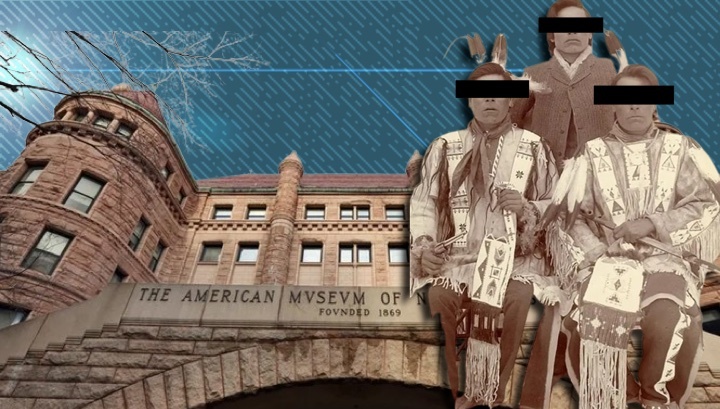New federal mandates have prompted the American Museum of Natural History to close several exhibits dedicated to Native American history.
The Department of Interior published a new set of guidelines in December regulating the conditions under which museums and federal agencies can display Native American artifacts. Artifacts cannot be displayed without the explicit tribal consent.
Tribes, descendants or Native Hawaiian Organizations must also consent before the institutions can use “human remains or cultural items” for research. The new requirements went into effect on Jan. 12. Museums and federal agencies have five years to update their inventories.
The rules are part of the implementation of the Native American Graves Protection and Repatriation Act, which was passed in the 1990s to remove collected Native American items to private or federal collections and return them to Native American communities.
“To facilitate repatriation, each museum and Federal agency must complete an inventory of Native American human remains and associated funerary objects and a summary of other cultural items,” notes the National Park Service. “A museum or Federal agency must ensure that these requirements are met for any Native American human remains or cultural item under its control regardless of where the holding or collection is physically located. Each museum and Federal agency must identify one or more representatives who are responsible for carrying out these requirements.”
Museums that do not comply risk losing their federal grants.
As of Jan. 27, visitors to the Natural History Museum will no longer be able to see the Eastern Woodlands and Great Plains Halls where several Native American artifacts are on display. Other display cases with Native American items will be covered up as the facility works to comply with federal regulations.
Axios reports that the museum’s president Sean Decatur sent a letter to staff saying the halls were “severely outdated.” Decatur also wrote that the changes are a “tremendous opportunity to learn and to deepen our relationships with Indigenous communities.”
The museum has not revealed when its halls featuring Native American history will reopen.
“Some objects may never come back on display as a result of the consultation process,” Decatur told The New York Times.
Members of the Lakota tribe have already publicly objected to the Natural History Museum's display of objects belonging to Native Americans involved in the battle at Wounded Knee. Among the objects are a saddle and a doll shirt.
“It doesn’t belong to you or I, it doesn’t belong to the museum,” said Wendell Yellow Bull, a descendant of Joseph Horn Cloud who survived the conflict, in an interview with Pro Publica in October. While the tribe did not suggest an exact plan, Yellow Bull said the item should be returned to relatives of those who were killed so they could mourn.

